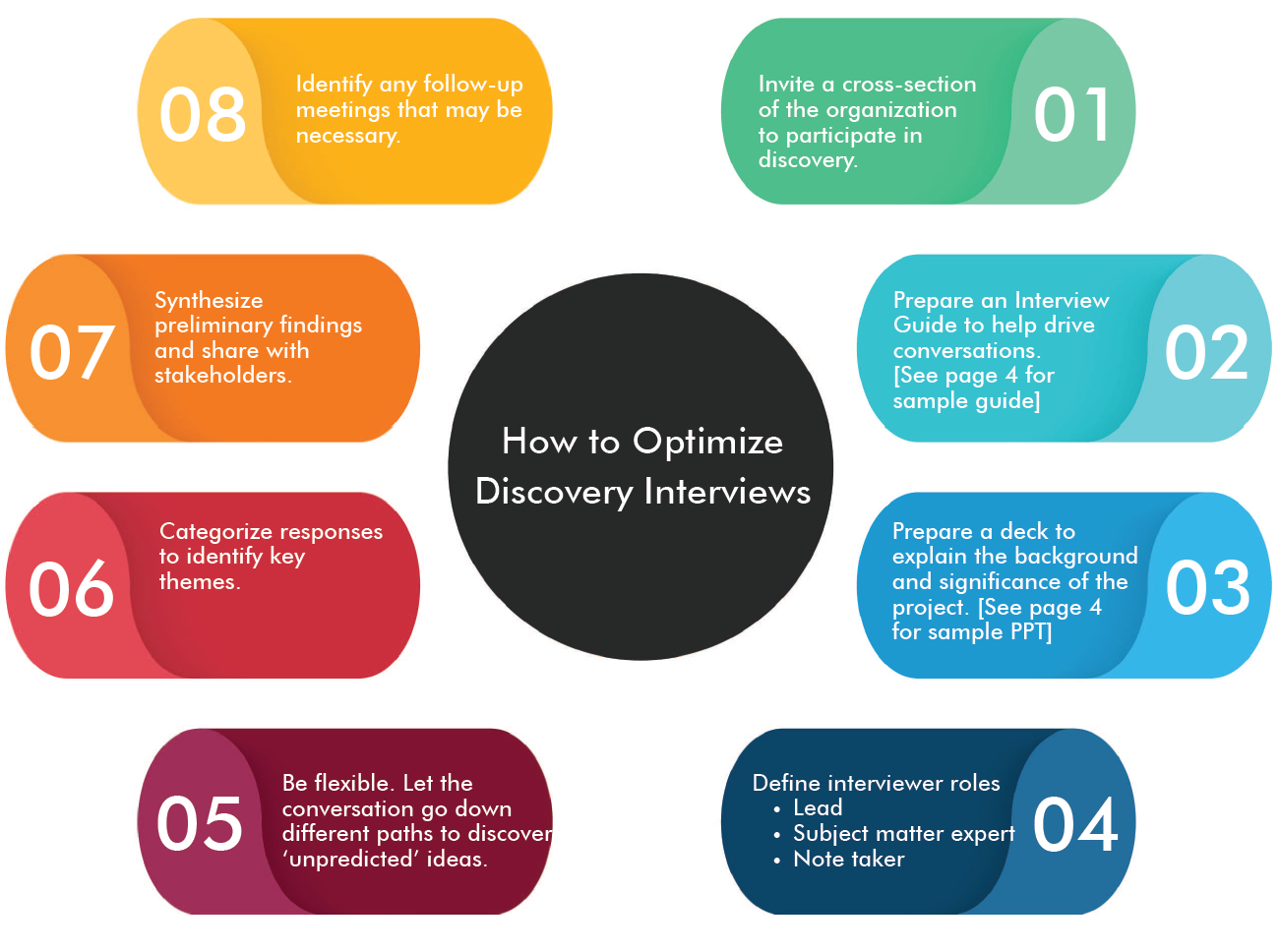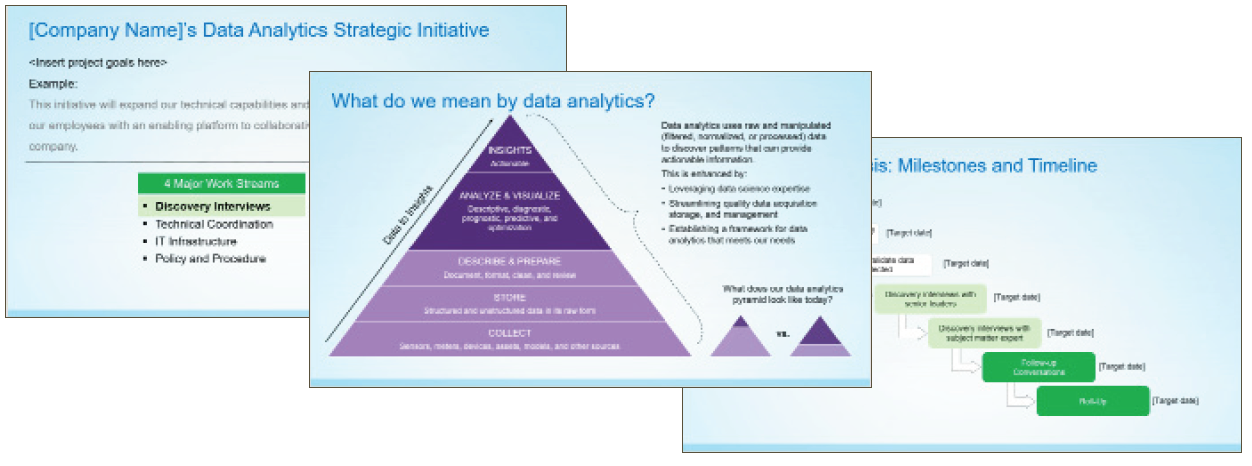Optimizing Discovery Interviews
The first phase of a data science initiative is to gain understanding about issues your stakeholders are facing — and you do that through Discovery Interviews. These interviews lay the groundwork and provide direction for the strategies and tactics you’ll need to use data effectively. With Discovery Interviews, you’ll come to understand your organization’s current state, as well as gaps and needs related to data science and machine learning, such as maturity, readiness, and ways to address the path forward.
Discovery is a critical first step before you design a data science solution. It helps ensure your solution fits the needs of your organization, now and in the future.
Key Insights
- Your goal is to identify problems that need solving, current analytic tools and technologies in use, existing processes, team capabilities and skill gaps, data sources, and more.
- Discover Interviews help you focus efficiently on organizational needs and challenges.
- Cross-functional teams are effective at leading the process and conducting interviews as they have a broad understanding of the organization and can help generate actionable outcomes.
- Results of Discovery Interviews will help guide the steps you’ll take to deploy data science in a way that best meets the specific needs of your company.
Keys to Succesful Discovery
Your objective is to understand and document your company’s unique needs and determine where your organization is on the data science maturity curve. Insights gained from Discovery Interviews will help you identify “use cases” (scenarios based on your organization’s real challenges), explore technology solutions that meet your company’s needs, and design a blueprint for moving forward with data science and machine learning.

Building Buy-In with Stakeholders
By sharing more information with your interviewees early in the process, you’ll get more out of the Discovery Interviews. For example, create a presentation about your data science initiative and the value that advanced analytics can bring to the organization.

Key Insights
- Recruit an executive sponsor to help communicate the importance of participating in the Discovery Interview process.
- Have a consistent interview team. It will save time in sharing insights from one interview to the next, and enable the team to compare and contrast responses.
- Focus on wins. Communicate how this project will benefit the interviewees, “what’s in it for them.”
- Interview a diverse group of stakeholders. Include senior leaders that represent a cross-section of the organization, technical subject matter experts, and functional leaders (e.g., HR, Legal).
Conclusion
By following the 8 steps for optimizing Discovery Interviews (page 2), you can uncover specific business questions from across your organization that can be addressed through data science. Creating a summary of all your interviews will help you to understand and document:
- Current state – You’ll discover how to (or how not to) handle all the data flowing into and through your organization. You’ll also learn what your team members need to be able to more easily harness the opportunities the data offers.
- Specific challenges – The discovery process can reveal gaps in technical and business understanding, infrastructure, policies and procedures, skills and capabilities. It can also shed light on employee awareness (or lack of) about the potential of data analytics techniques to enhance their work.
- Solution opportunities – The data science solutions you build must fit your organization’s specific needs. Ideas shared by the interviewees and themes found during the interview synthesis help drive the next steps of the project – including development of use cases (scenarios based on real challenges) and selection of technology.
As your Discovery Interviews help you better understand the organizational challenges to be solved with data science, you build a foundation for the path forward. This process also enables you to increase engagement across the company, and motivate team members to enhance their data literacy and recognize the powerful business impact of data science, machine learning, and AI.